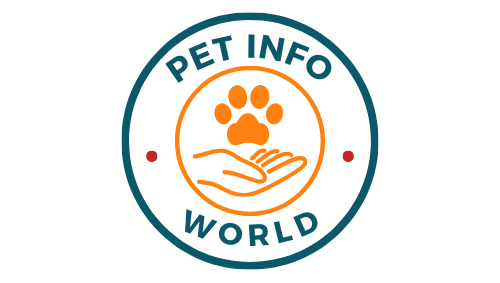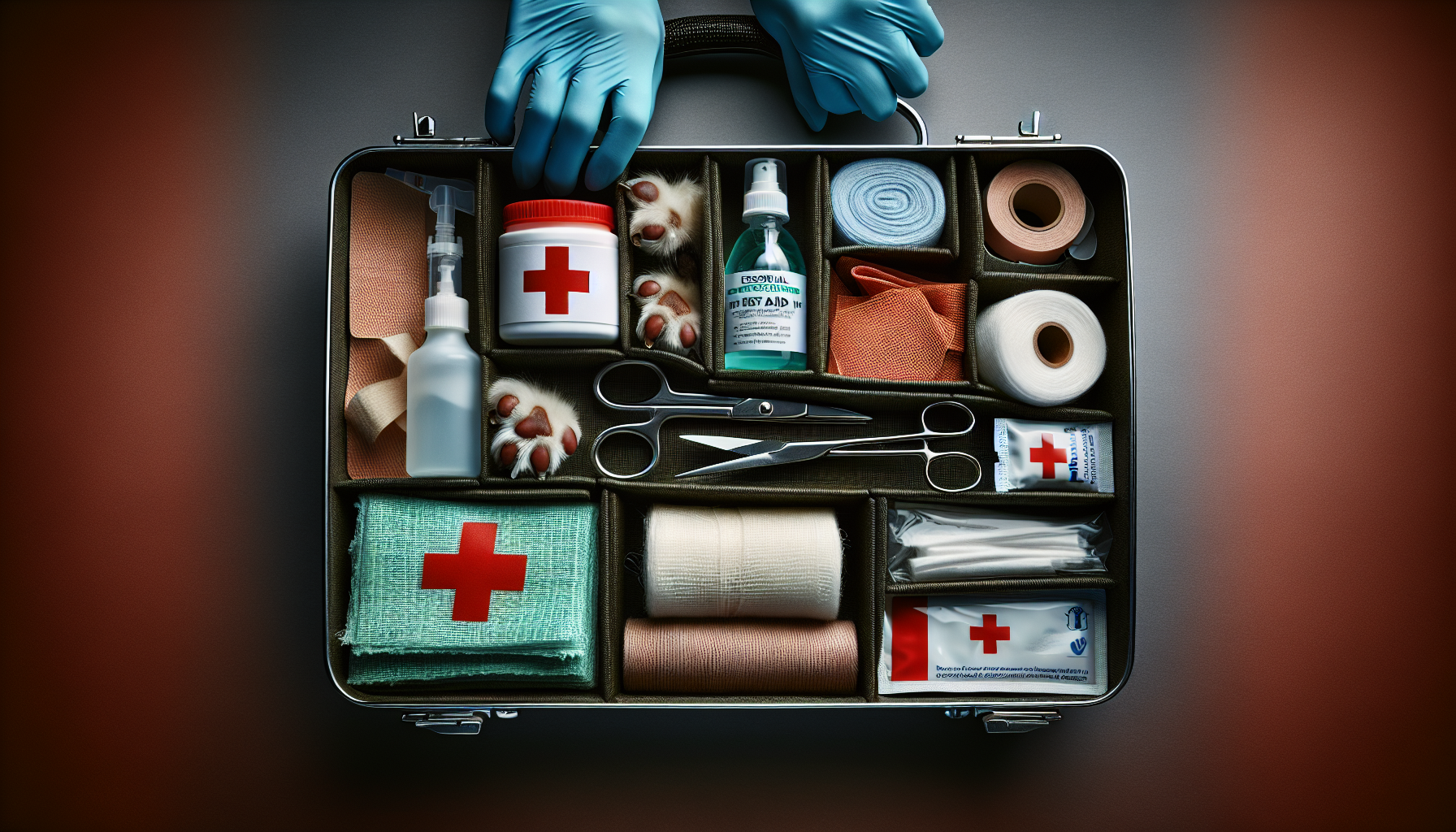In a world where our furry friends hold a special place in our hearts, it is crucial for pet owners to equip themselves with essential first aid skills. From minor injuries to emergency situations, being knowledgeable and prepared can make all the difference in ensuring the well-being of our beloved pets. In this article, we will explore the importance of acquiring these skills, as well as highlight some of the key first aid techniques that every pet owner should know. So, grab a pen, take notes, and let’s embark on a journey to becoming the best pet owner and caregiver possible!

First Aid Skills for Pet Owners
As a pet owner, it is essential to be prepared for any emergency situation that may arise with your furry friend. Whether it’s an injury, illness, or accident, having some basic first aid skills can make a significant difference in your pet’s well-being. In this article, we will explore a comprehensive guide to first aid skills for pet owners, including recognizing emergency situations, creating a pet first aid kit, contacting a veterinary professional, performing CPR on pets, bandaging wounds, treating burns and scalds, dealing with choking, managing poisoning, handling seizures, and providing heatstroke relief.
Recognizing Emergency Situations
Knowing how to recognize emergency situations is crucial in ensuring your pet receives prompt and appropriate care. Some signs that indicate an emergency may include difficulty breathing, an unconscious or unresponsive pet, excessive bleeding, severe vomiting or diarrhea, symptoms of heatstroke, fractures or broken bones, severe allergic reactions, ingesting toxins or foreign objects, uncontrolled seizures, and choking or gagging.
Creating a Pet First Aid Kit
Having a well-stocked pet first aid kit readily available can be a lifesaver in emergencies. Your pet’s first aid kit should include basic supplies such as gauze pads, adhesive tape, antiseptic wipes, scissors, tweezers, latex gloves, and a digital thermometer. Additionally, it is important to have pet-specific medications, emergency contact information for your veterinarian and local emergency veterinary clinic, as well as instructions and your pet’s medical history in the kit. Carry the kit with you when traveling with your pet and regularly check and restock its contents to ensure its effectiveness.
Contacting a Veterinary Professional
While having first aid skills is essential, it is equally important to know when to seek professional veterinary help. Familiarize yourself with the contact information of an emergency veterinarian clinic or hospital in your area. If you encounter a situation where your pet’s condition requires immediate attention, do not hesitate to call the vet. When contacting the veterinarian, describe the situation clearly and follow their instructions closely. They are experienced professionals who can guide you on the necessary steps to take until you reach the clinic or while waiting for further directions.

Performing CPR on Pets
Cardiopulmonary resuscitation (CPR) is a life-saving technique that can be performed on pets in emergency situations when their heart stops or they stop breathing. Recognizing the need for CPR is crucial, and you can check for a pulse by placing your fingers gently on your pet’s femoral artery or by observing their chest for movement. If your pet is unresponsive, begin by performing artificial respiration, which involves sealing your pet’s mouth and breathing into their nose. Chest compressions should be applied using both hands, with variations depending on the size of your pet. It is crucial to be aware of the vital areas of compression to ensure the effectiveness of CPR.
Bandaging Wounds
In the case of a minor wound, being able to properly bandage it can prevent further injury or infection. Start by assessing the wound and determining its severity. Clean the area with antiseptic wipes or a mild soap solution, and gently remove any debris if necessary. When choosing a bandage type, ensure it is appropriate for your pet’s size, and be sure to properly secure it without causing discomfort. Over time, monitor the healing process and change the bandage as needed. If the wound appears severe or does not show signs of improvement, seek professional assistance from your veterinarian.
Treating Burns and Scalds
Burns and scalds can be excruciatingly painful for your pet and require immediate attention. Assess the severity of the burn by determining if it is a minor, superficial burn or a more severe deep burn. For minor burns, cool the burned area immediately using cool water or a cold compress, ensuring not to use ice or freezing temperatures. Cover the burn with a sterile, non-stick dressing to protect it from further trauma or infection. Avoid using home remedies or ointments, as they may not be suitable for your pet. It is crucial to seek veterinary care to evaluate the burn properly and provide appropriate treatment.
Dealing with Choking
Choking is a potentially life-threatening situation where immediate action is required. Recognizing the signs of choking, such as difficulty breathing, excessive drooling, or panicking behavior, is crucial. Perform the Heimlich maneuver by standing behind your pet and applying firm but gentle pressure between their ribcage and abdomen. Be cautious and aware of variations in the technique based on your pet’s size and breed. Taking precautions to prevent choking incidents, such as avoiding small or sharp objects, can help reduce the risk. If you are unable to remove the object or your pet’s condition worsens, seek veterinary help immediately.
Managing Poisoning
Pets can accidentally ingest poisonous substances, which requires immediate attention. It is essential to be aware of common poisonous substances for pets, such as certain human medications, household chemicals, toxic plants, and food items that are toxic to animals. Recognizing symptoms of poisoning, such as vomiting, diarrhea, trembling, or seizures, is crucial. Contact poison control or your veterinarian immediately for guidance on the next steps to take. Prevent further ingestion by removing the source of poisoning and following professional guidance closely. Quick action can significantly increase the chances of a positive outcome.
Handling Seizures
Seizures can be a distressing experience for both pets and their owners. During a seizure, it is vital to stay calm and ensure your pet’s safety. Clear the immediate surroundings of any objects that could cause harm. Do not attempt to restrain your pet or place anything in their mouth during a seizure, as it may lead to injury. Time the duration of the seizure, and if it lasts longer than five minutes or if your pet has multiple seizures in a short period, contact your veterinarian immediately. Providing a quiet and comfortable space for your pet after a seizure is essential for their recovery.
Providing Heatstroke Relief
Heatstroke can be life-threatening for pets, especially during hot weather or when left in a hot car. Recognizing the signs of heatstroke, including excessive panting, difficulty breathing, drooling, rapid heartbeat, vomiting, or collapse, is crucial. Move your pet to a cool environment immediately, preferably with access to shade or air conditioning. Lower your pet’s body temperature safely by applying cool, wet towels to their body or immersing them in cool (not icy) water. Offer them fresh water to drink and seek veterinary assistance promptly to evaluate and treat any potential complications resulting from heatstroke.
By familiarizing yourself with these essential first aid skills for pet owners, you are better prepared to handle emergency situations and provide immediate care to your beloved pet. Remember, while these skills are valuable, they are not a substitute for professional veterinary care. Always consult your veterinarian for proper diagnosis and treatment for any health concerns your pet may have. Your preparedness and quick action can make a significant difference in the outcome and well-being of your furry friend.

